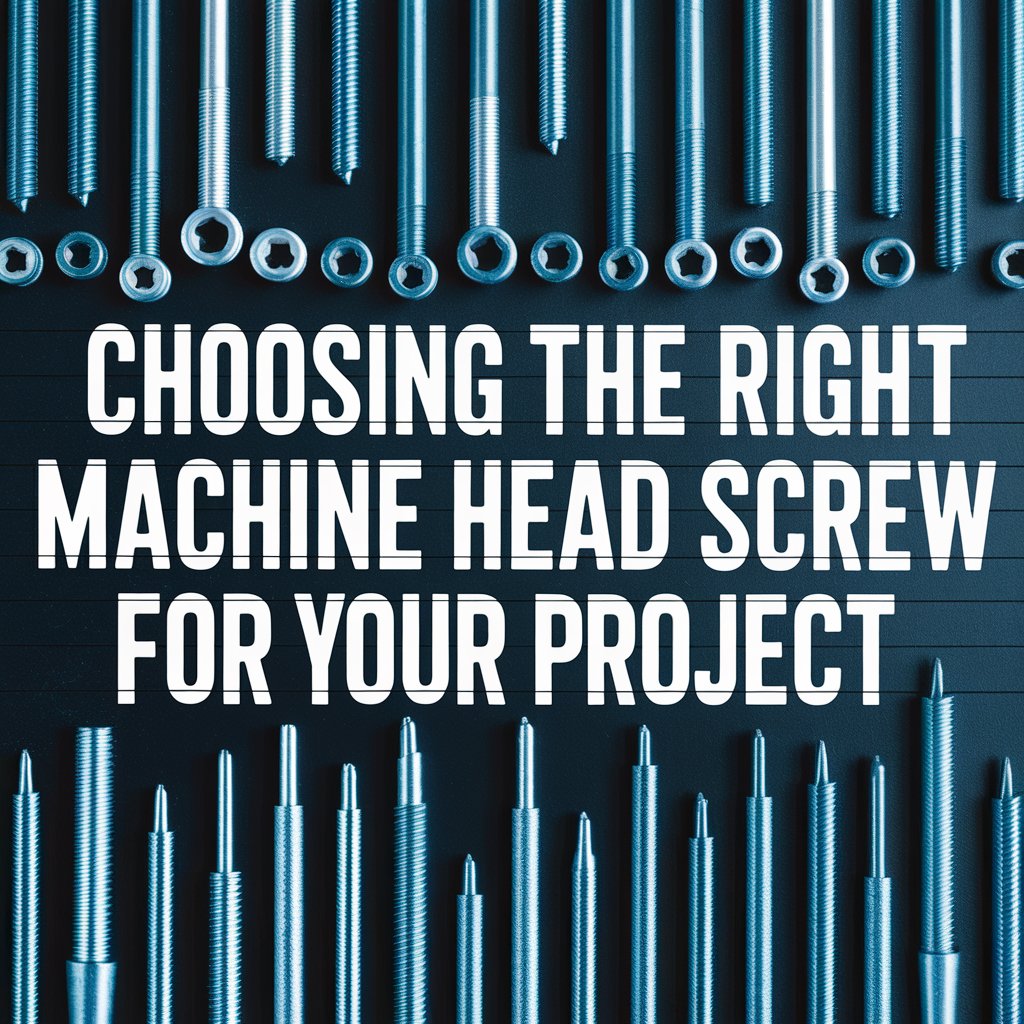Have you ever wondered if the screws you’re using are suitable for the job? Selecting the appropriate screw type can be critical to the success of your project. Not only do they need to be the correct size and material, but their head style also plays an essential role.
Getting the suitable machine head screws will ensure your project is durable, secure, and well-crafted. Let’s explore some key considerations to remember as you make your choice. Let’s explore them in detail.
Understand the Requirements of Your Project
Before selecting screws, you need a clear understanding of your requirements. Different projects demand specific features, from holding heavy-duty materials to securing delicate components. Think about what kind will support them and what conditions they will face, such as moisture, heat, or heavy pressure. This helps narrow down your options, saving time and avoiding mistakes.
Match the Screw Head Type to Your Needs
Choosing the right head type can make all the difference. Machine screws come in several head types, such as flat, round, or hex, each offering unique benefits. Flat heads provide a flush surface, round heads give a more prominent finish, and hex heads allow for high torque applications. Consider your project’s aesthetic and functional needs when selecting the head type. The right choice will not only look good but also perform well.
Consider the Material for Durability
The material of the screw directly affects durability and strength. Common materials include stainless steel, brass, and alloy steel, each with unique properties suited for specific environments. Stainless steel resists rust, making it ideal for outdoor applications, while brass offers a decorative touch with its distinct color. Think about the environment they will encounter when choosing a material that can handle it, extending the life of your project.
Assess the Drive Type for Ease of Installation
Drive type affects how easy it is to install and remove screws. Some common drive styles include slotted and hex drives, each offering a different level of grip and torque. Consider a drive type that provides easy access without stripping for projects requiring frequent assembly and disassembly. The right drive type minimizes the risk of wear and tear during installation, keeping your work intact.
Factor in the Thread Style for Secure Fastening
Thread style is another essential aspect to consider. Some machine screws have coarse threads, ideal for softer materials, while others have fine threads for stronger holds in hard materials. Understanding the demands of your project will help you select the thread type that provides secure fastening. Matching the thread style to your material can prevent loosening over time, ensuring a lasting fit.
Look for the Right Size and Length
Choosing the correct size and length is crucial for secure fastening. Machine screws are available in various lengths and diameters, so measure carefully before making a decision. Too short, and it might not hold; too long, and it could damage the material. Consider using a sizing guide or consulting with a professional to ensure you select the right dimensions for your needs.
Consider Temperature Resistance for High-Heat Applications
For projects exposed to high temperatures, such as machinery or certain electronics, screws must be heat-resistant. Alloy steel and titanium are excellent for such applications, as they maintain their integrity in extreme heat. Selecting temperature-resistant ones helps avoid melting or warping, providing lasting durability.
Evaluate Vibration Resistance for Stability
If your project involves vibrations or movement, such as automotive or machinery applications, choose screws with enhanced vibration resistance. Some kinds feature self-locking threads or additional features to prevent loosening from constant movement. Selecting vibration-resistant ones ensures that the structure remains secure, even under stress.
Prioritize Cost-Effectiveness without Compromising Quality
Finally, consider your budget and the cost-effectiveness of each option. While quality screws might be slightly more expensive, they offer durability and better performance over time. Investing in quality materials can reduce the risk of future repairs or replacements, making them a cost-effective choice in the long run.
Analyze Torque Requirements for Optimal Tightening
Torque plays a critical role in securing machine screws without over-tightening or causing damage. Different kinds have varied torque specifications, especially in applications needing precision. Understanding the torque requirements ensures proper installation, preventing stripping or weakening of the material. Choose the torque ratings suited to your project’s needs for reliable fastening.
Selecting the suitable machine head screws for your project is essential for achieving a secure, professional finish. From material choice and head type to drive style and finish, each factor plays a role in the performance and durability of your project. Taking time to choose wisely ensures your project will look great and withstand the test of time. You can confidently select the best for a well-done job by carefully considering these essential elements.




